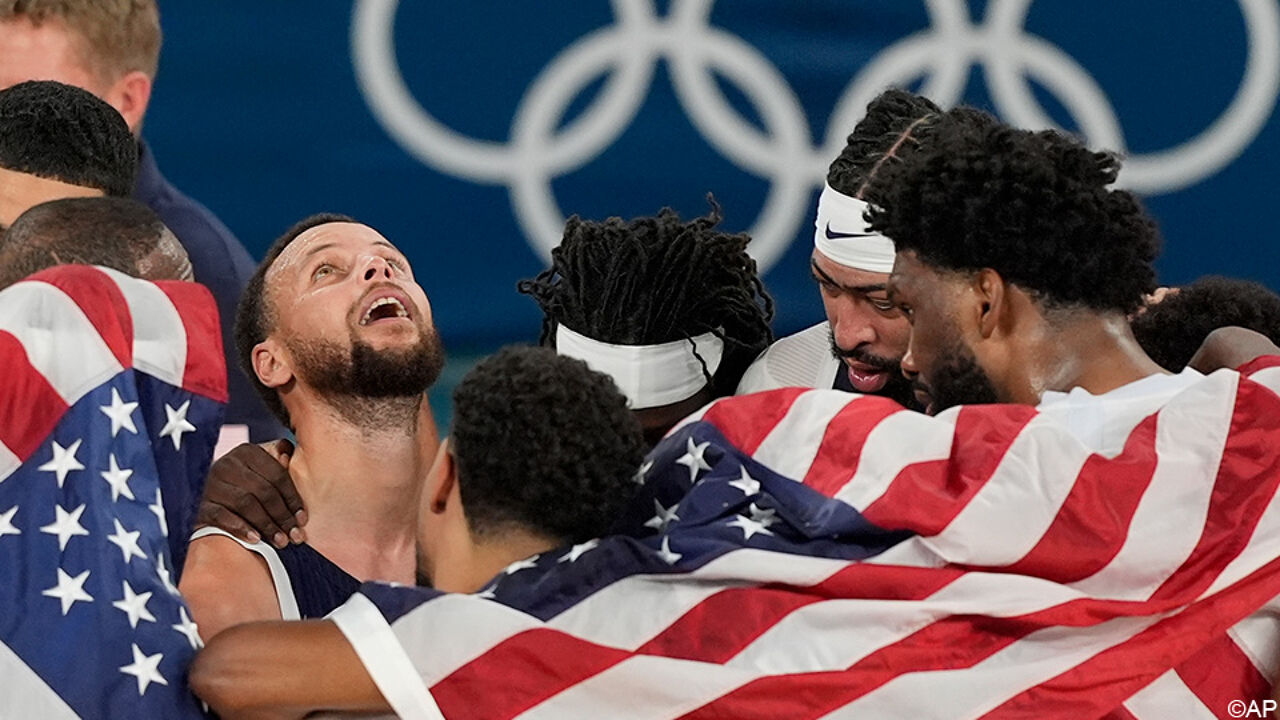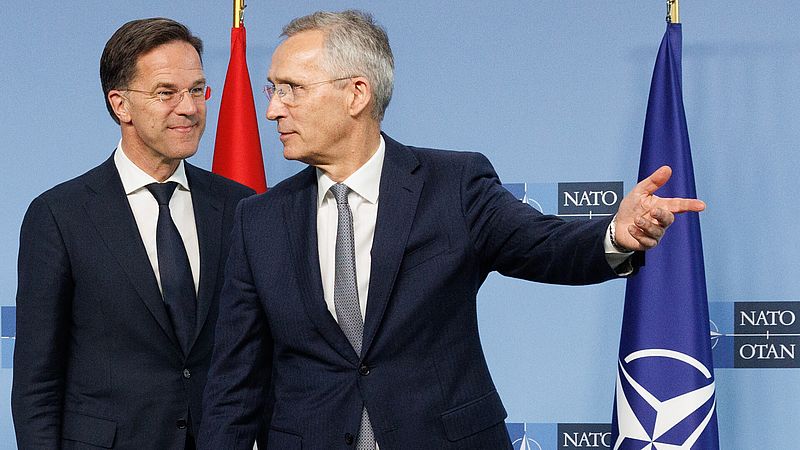Mark Rutte was officially appointed NATO’s new chief executive this week. On October 1, he will take over from current Secretary General Jens Stoltenberg. We asked what you want to know about this?
Defense specialist Dick Zandi of the Clingendael Institute answers your questions.
1. What is the job of NATO’s Supreme Commander?
“Actually, this job is not precisely described anywhere. That might be a bit strange,” Zandi begins to laugh. “In any case, the Secretary-General does not have absolute power in the organization. For example, he cannot exercise veto power.”
According to the defense specialist, the Secretary General has several important tasks: “You can distinguish at least three: he is the president of the NATO Council, he has a general role and a mediation role.”
“As President of the NATO Council, the Secretary General leads the weekly meetings at which the Council meets,” he explains. “The Council is the decision-making body within NATO, in which all member states are represented.” “The Secretary-General not only chairs the meetings, but also prepares and manages them And the actions that result from that.”
In the general role, Zandi says the Secretary-General is “NATO’s spokesman.” “He goes to the press, explains what has been taken and answers questions. This requires a good sense of what he can say and what he cannot say, because he should only say things that all member states agree on.”
“In his mediating role, the Secretary General is expected to bring together positions on which the Allies differ,” he continues. “Decisions in NATO are only taken on the basis of consensus: everyone must agree.”
2. How neutral should the NATO chief be?
“Actually quite neutral,” Zandi confirms. “From the moment the Secretary-General was appointed He is not in NATO to represent a member state, but has become an independent international official.”
“There is always room for mediation,” he adds. “For example, the secretary-general can announce through the press that a particular member state is obstructing something that other member states consider absolutely necessary. But this is a dangerous game: if things go wrong, member states can undermine the independence of the secretary-general.”
According to him, the current Secretary General, former Norwegian Prime Minister Jens Stoltenberg, has shown that as the top NATO leader, you can be impartial. “I don’t think it’s possible to catch him making a single mistake in his press appearances. Moreover, it would have been true if he had taken initiatives that would have ended in failure,” he added.
“This suggests that Stoltenberg had a very good feeling about what NATO member states had in common,” explains the Clingendael expert. “And he has the quality to build, maintain and expand consensus around that.”
3. Is it possible that if Donald Trump becomes President of the United States again, he will put pressure on Rutte?
“This is of course one of the big black clouds,” Zandi says. “You could probably say this is the most important challenge Rutte can face.”
“In his national role as prime minister, Rutte has shown that he can deal with Trump, and Trump knows him, too, so that gives him a good starting point,” he believes. “But Trump can be disruptive, and we saw that in his first term as president. He has threatened several times not to support NATO allies if necessary. He has also threatened to leave NATO.”
According to the defense specialist, both will “directly” affect NATO unity: “Because US involvement in NATO is crucial. One Ally is more important than the other, and the US is in the position – because of its role as a partner nation.” A global security player – head and shoulders above the rest, formally their voice does not carry more weight, but in the practice of making decisions you notice this role.
However, Zandi says the situation with Trump now is different than it was in January 2017, when he first took office as president. “At that time, a lot of NATO countries scored poorly on something that he considered very important, which is the NATO standard that requires member states to spend at least 2 percent of their GDP on defense. The vast majority of allies do not meet that standard.”
4. Does the Secretary-General also have behind-the-scenes contacts with countries such as China, Russia, North Korea, Iran, etc.?
According to Zandi, this is “not very likely.” He added that “NATO has a number of partner countries outside the alliance, such as Japan and South Korea, and also a number of countries in the Middle East.”
“But Russia and China probably can’t count on the Secretary-General visiting at the moment,” the defense expert believes. “He won’t go there, because the United States will then put pressure on itself. Its relations with those countries are much worse.”
“There was contact with Russia, there was even a NATO-Russia Council. But at the moment this contact is frozen,” he explains. “Only when a solution is found in Ukraine, when NATO’s policy towards Russia enters new waters, can the day come when contacts are resumed.”
According to him, China is a chapter in itself: “So far there has been no contact with the country. But in the future, a NATO policy could arise that requires the Secretary General to visit China as well. But again only when all member states agree.” “
“As for North Korea and Iran, these are countries that are disrupting the international system and have no relationship with NATO allies at all,” Zandi said. “So I can’t imagine that the secretary-general has anything to discuss with them. Something very miraculous would have to happen for that to be necessary. As long as that doesn’t happen, the secretary-general is effectively out of office if he were to visit anyway.”
information
Einvandag asks
This article contains answers to questions submitted via EenVandaag Askt. With EenVandaag Askt, you have an influence on what we do. Would you like to join? Then download the EenVandaag polling app, go to “Settings” and turn on notifications for EenVandaag requests. You will find the questions and answers under “Participation”. EenVandaag’s Polling app is free to download App Store or Play Store.
5. What does it mean for the Netherlands that Rutte will soon become head of NATO?
That’s a good question, but it’s hard to answer, Zandi begins. “In principle, it’s good for the Netherlands that Rutte is secretary general, because it reflects on national glory,” he adds. Although we shouldn’t exaggerate, he adds. “It’s not that Norway has suddenly started playing a much more important role since Stoltenberg became NATO chief.” However, he believes it is a certain form of prestige. “Furthermore, we are the country that is now the fourth secretary general and that is unique.”
This also represents a risk, explains the Clingendael expert. “The Secretary-General must not play the Dutch role too much. Rutte must also be careful not to fall too much into his old role. This once went wrong with former Danish Prime Minister Anders Fogh Rasmussen, who served from 2009 to position of Secretary-General of the United Nations. General in 2014. He wanted to play a little prime minister in front of NATO ambassadors and said many things in his public role that member states have not yet agreed upon.
Zandi believes that Rutte is smarter and will be able to avoid this danger. “But you still have to be careful,” he says finally. “The prime minister of the Netherlands and the secretary general of NATO are actually two different offices.”
Asking? Ask them!
Have any questions or want answers? Send us a message here in the chat. We tell you every Thursday in the Get Involved newsletter what we’re doing with all the answers. Want them in your inbox? Then sign up here.

“Lifelong food practitioner. Zombie geek. Explorer. Reader. Subtly charming gamer. Entrepreneur. Devoted analyst.”










More Stories
Revealing the ten countries that support Ukraine the most
Funny protest against mass tourism in Galician village
Kamala Harris has wind in her sails, but Trump can still win